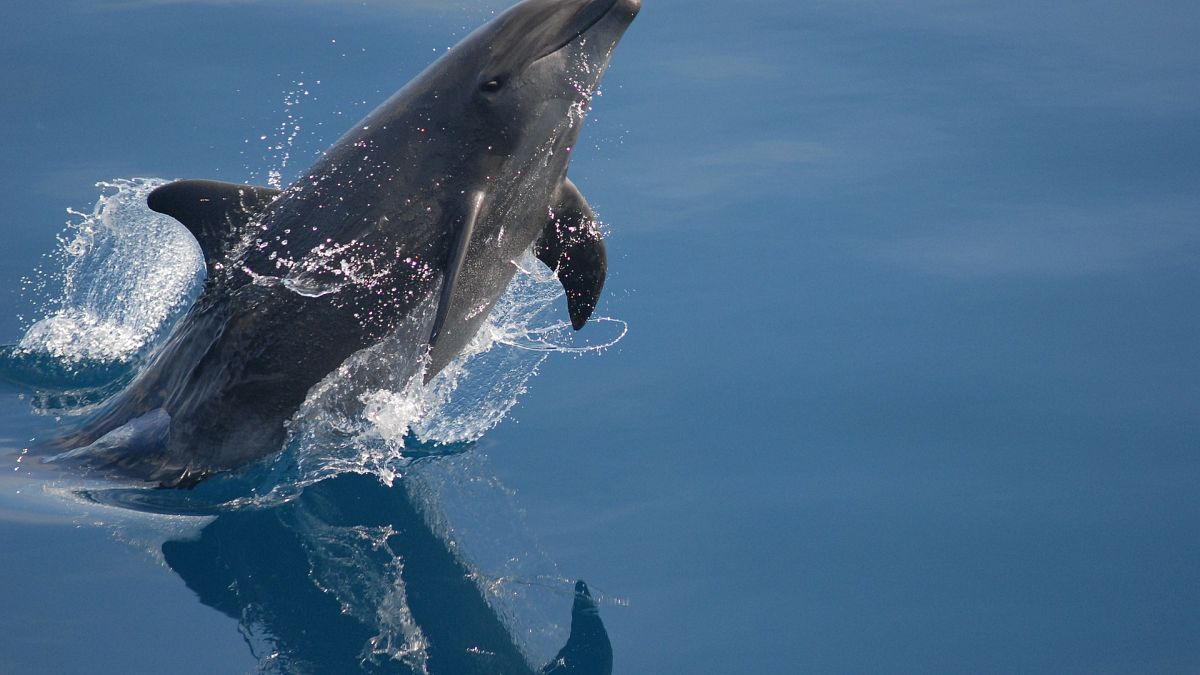A study has found a 'cocktail of pollutants' in dolphins living in the English Channel.
A “cocktail of pollutants” has been found by a scientific study in bottlenose dolphins living in the English Channel.
The levels of mercury persistent organic pollutants are “among the highest reported” for cetaceans, the report notes.
They were found in the blubber and the skin of bottlenose dolphins, which are also called ‘Tursiops truncatus’ and live in the Normanno-Breton Gulf, off the coasts of France.
Pollutants were collected from samples of skin and blubber of 82 bottlenose dolphins by the team of researchers, led by Dr Krishna Das, from the University of Liège in Belgium.
The “cocktail of pollutants” they found in the samples included a high concentration of polychlorinated biphenyls (in the blubber) and mercury (in the skin), as well as other chemicals such as industrial pesticides and dioxins.
Most of the pollutants that were found in the dolphins were banned in western Europe in the 1970s and 1980s, but the chemicals stay in the water, “including in the deepest ocean fauna”, the study says, where they then accumulate in the skin and blubber of dolphins over time.
Because the pollutants are passed by mothers to their offsprings during gestation and lactation, the findings of the study have raised concerns for the Gulf’s dolphin population. “Female dolphins offload a significant portion of this cocktail to their offspring during gestation and lactation, placing foetuses and newborns at a higher risk,” the report notes. Male dolphins are at risk too, as they “continue to bioaccumulate PCBs throughout life”.
The study calls for the coasts of Normandy and Brittany to be made a “special area of conservation” because it hosts one of the biggest coastal bottlenose dolphin population in Europe, which are “rare or threatened within a European context”. The report advocates for the species’ “need for strict protection”.
The pollutants, the study warns, “pose a serious environmental threat to wildlife and humans”.
